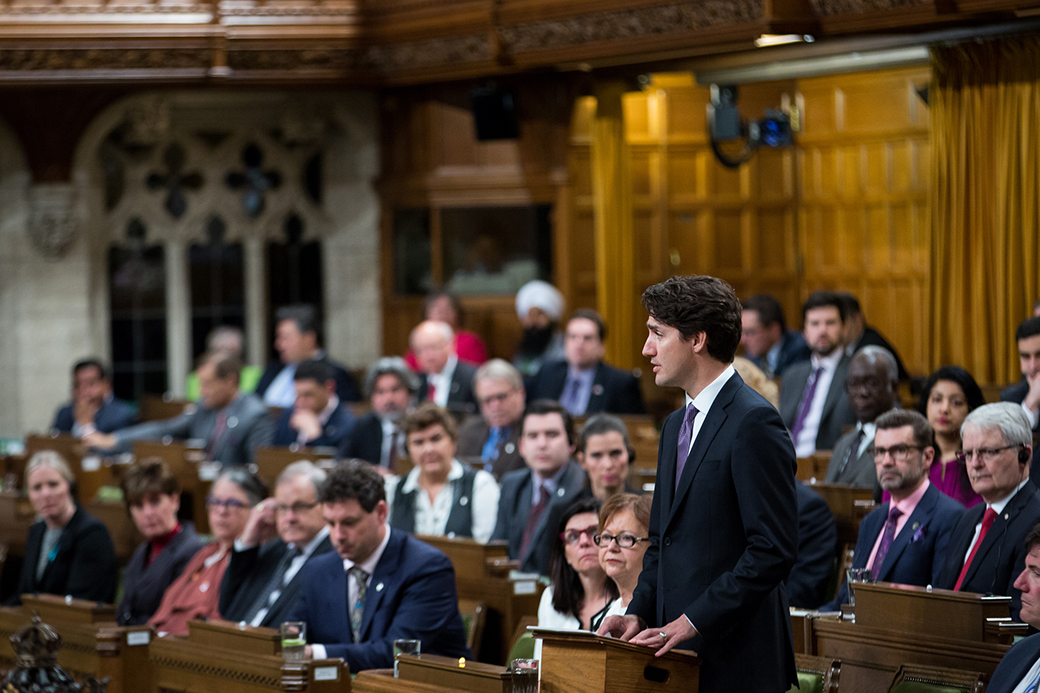By 2015, for most Canadians, the Harper government had run out its time. Voters decided to replace it with the Trudeau Liberals. How is that working out?
The Liberals are cooking up changes to the Standing Orders of the House of Commons that look suspiciously like a power grab on the part of the government. Closing down debate though parliamentary closure was standard Harper procedure.
Have a pipeline you want built? The Canadian government will smooth your way, Trudeau Liberal or Harper Conservative.
As prime minister from 1963 to 1968, Lester Pearson suggested international development could provide Canada with a sense of purpose. His chosen vehicle, the Canadian International Development Agency, was dismantled by Harper; its budget had been previously been reduced significantly by Chrétien.
As Africa advances into a terrifying era of famine, where is the Trudeau government? It announces a small charitable donation, provides no domestic leadership, and takes no initiative internationally.
Relative indifference to looming starvation reflects poorly on Liberal internationalism, a policy outlook much disliked by Stephen Harper.
The foreign policy of the Harper Cons was to undertake bilateral trade talks with over 50 countries.
At a time of much economic stagnation worldwide, is the Trudeau government committed to working with other countries to revive multilateral trade, investment and financial rules? No. Sitting down for bilateral talks with China, allowing it to use its size advantage over Canada in negotiating a trade pact favourable to Beijing is the Liberal policy, as it was the Conservative policy.
On climate change the Trudeau government made the Harper government targets for greenhouse gas emission reductions its own targets, and like Harper, has no policy for implementing them. As a result, Canada will not meet its Paris Accord promises, just as Canada missed its Kyoto Accord commitments.
On Aboriginal issues the Liberal government introduced a welcome change of tone. Unfortunately, Aboriginal issues remain a low priority for the Trudeau government. As under Harper, resource extraction takes precedence.
At election time, women show greater support for Liberals than for Conservatives. Have women benefited as a result? Not if providing concrete measures important to the lives of women is any indication.
For instance the Liberals promised child-care spaces in 1993, 1997, 2000 and 2004 without delivering. The recent budget offers a plan, but no real money until after the next election. Harper used to telescope budget measures in the same fashion.
Conservatives were strong supporters of infrastructure spending. Except that money was only available through public-private partnerships (P3s). These P3 screens meant available infrastructure money was not taken up, as provinces and municipalities wanted lower cost and more efficient public investment than could be provided by P3 projects.
The Liberals won the last election promising infrastructure spending. Two budgets later, no real money has been allocated, let alone spent. Rumours abound about selling airports and other public assets to fund infrastructure spending.
Like the Harper government, the Trudeau government likes P3s, which require the public to pay higher interest costs, fund profits, and get lower-quality services than public investments.
On electoral reform, the Liberals were for it. Being quite distinct from the Conservatives before the election did not mean they were going to be any different after taking power.
Electoral reform can be promised again before the next election, which will be fought under the same regime as election 2015. A promise by Justin Trudeau to the contrary turns out to be meaningless.
Justin Trudeau is a skilled politician. People like him, want to meet him, talk to him, be photographed with him. Stephen Harper never knew any similar popularity.
Harper failed miserably as a political strategist. He insisted on cancelling the long-form census for no good reason, made the 2015 election campaign long enough to allow Justin to catch a wave, and threw the niqab into the Quebec race, which made the NDP stumble, but not Justin Trudeau. These strategic decisions all gave the Liberals space for a majority win.
Does Trudeau have the strategic sense Harper lacked to hold onto his majority? His continued popularity depends on it.
Duncan Cameron is former president of rabble.ca and writes a weekly column on politics and current affairs.




